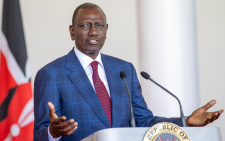US-China deal struck in Geneva eases global trade

Since President Donald Trump’s return to the White House on January 20, 2025, the trajectory of U.S.-China relations has once again taken centre stage in global affairs. The early months of his second term were marked by a sharp escalation in trade measures between Washington and Beijing, reviving fears of a prolonged and potentially destabilising economic standoff between the world’s two largest economies. Yet amid the turbulence, the recent breakthrough deal reached in Geneva offers a cautious but critical pivot – one that may restore a measure of stability to global trade and reassure anxious markets around the world.
The Trump administration wasted no time in reasserting its hardline trade priorities. By early April, tariffs on Chinese goods had surged to 54 per cent, with some sectors facing additional hikes that pushed effective rates beyond 100 per cent. The White House framed the moves as a response to “deeply unfair practices,” as well as an effort to curb the flow of fentanyl precursors from Chinese sources. Beijing responded in kind, raising its own tariffs on U.S. exports up to 125 per cent and tightening conditions for American firms operating in China.
At first, the tit-for-tat escalation appeared to signal a return to the acrimonious trade war of 2018–2020. Yet this round of confrontation has differed in tone. While the public rhetoric remains firm, subtle shifts in messaging from both sides hint at a willingness to re-engage. This was confirmed during the recent Geneva negotiations, where US Treasury Secretary Scott Bessent and Chinese Vice Premier He Lifeng brokered a limited but significant deal.
The Geneva accord, announced at the close of weekend-long talks, entails a 90-day mutual tariff reduction—with U.S. tariffs on Chinese imports scaled back to 30 percent and China slashing its duties on U.S. goods to 10%. While not a permanent solution, this temporary truce marks an important confidence-building measure, signalling that both sides recognize the unsustainable cost of continued escalation. For global businesses and especially for developing economies reliant on trade flows, this represents a welcome respite.
Market reaction was swift. Global indices rallied on news of the accord, with investor optimism buoyed by the prospect of de-escalation. For multinational firms operating across both jurisdictions, the breathing room provided by the tariff rollback offers a chance to stabilise operations, recalibrate supply chains, and avoid disruptive contingency planning. For consumers, it may temper the price surges that had begun to ripple across key sectors such as electronics, food, and pharmaceuticals.
The implications for the Global South – particularly African and Southeast Asian economies – are equally profound. Countries like Kenya, which depend heavily on predictable trade dynamics and affordable imports, were already feeling the effects of higher prices and slower capital inflows. The Geneva agreement reduces pressure on these economies and reaffirms the value of a rules-based international trading system, even amid shifting geopolitical realities.
-The writer is a Journalist and Communications Consultant-














